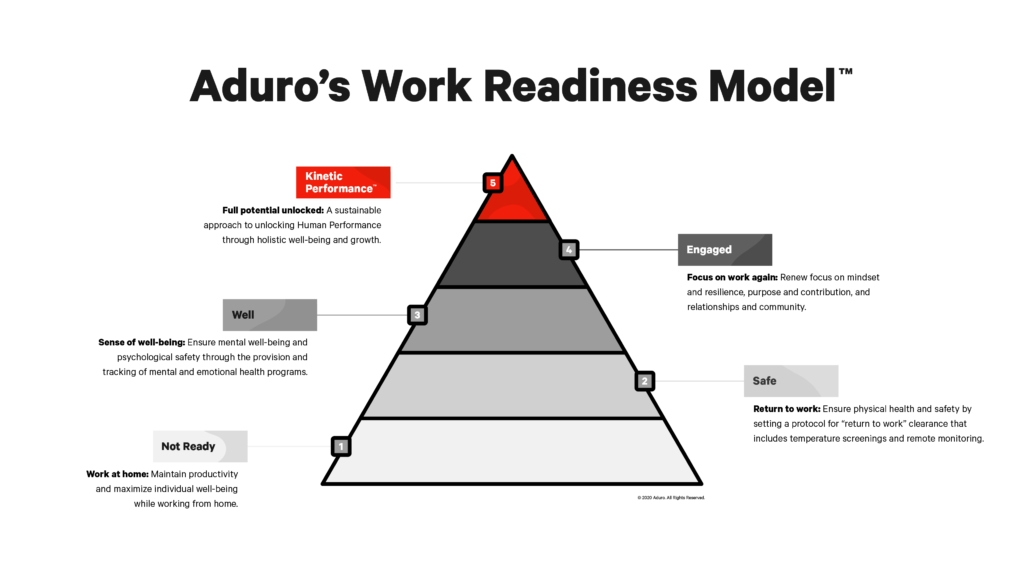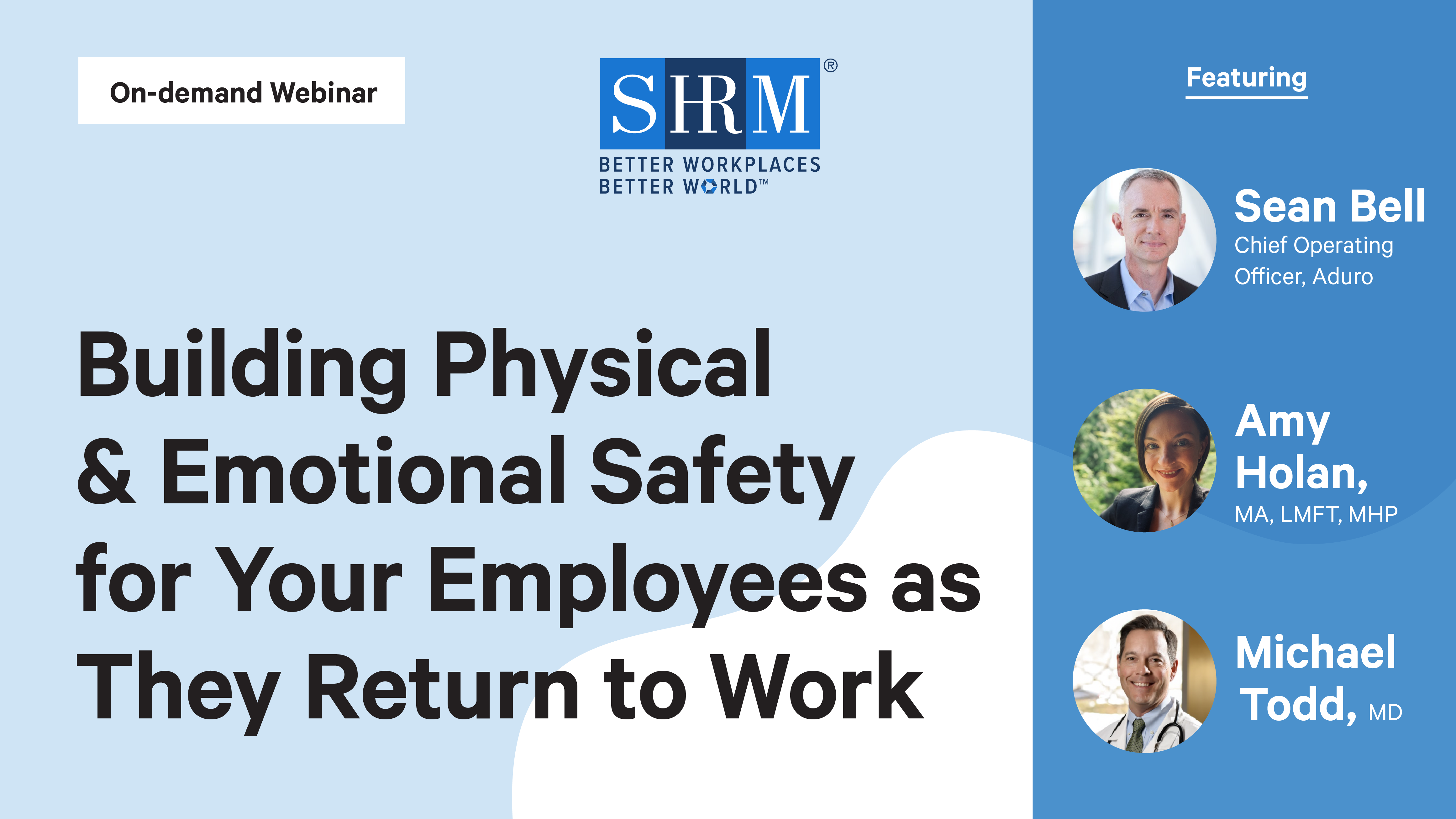During the June 2nd SHRM Webinar, Sean Bell, Amy Holan, and Dr. Michael U. Todd discussed the stages of returning to work and the steps necessary for bringing employees back to work in a successful and sustainable way, with a focus on mental health considerations.
Sean Bell started off acknowledging that this conversation had even more relevance and sensitivity this week than it did last. We now need to help our employees navigate not just COVID-19 and returning to work, but also tensions around racial injustice and conversations around DE&I. It is imperative to embrace what is happening in the world right now.
Dr. Michael U. Todd talked through how Bon Secours Mercy Health (BSMH) has addressed the physical and psychological elements of essential employees in the workplace during the pandemic and non-essential employees returning to the workplace. BSMH utilized a phased approach which prioritized availability of testing for those who needed to be in-person helping patients. When looking back at what could have been done differently, Dr. Michael U. Todd noted the preparation for large scale testing in order to bring people back in for elective procedures more quickly.
Watch the full discussion on-demand
Bell and Holan raised important points for each company’s risk tolerance assessment. Holan acknowledged that individual employees are going to feel varying levels of risk upon returning to work. It is necessary to empathize with both those who feel very safe and those who feel very unsafe in coming back to the office. Keeping policies and communication consistent will help build psychological safety for all employees.
Holan noted one of the most important elements is considering that we are all experiencing a trauma but that some of the most intense levels of trauma response may come later on as people move into the “new normal”.
Bell reviewed Aduro’s Work Readiness Model™ and the need for employer’s to utilize this to create a return-to-work response that works for each company’s unique values and needs.

Holan noted some of the most important mental health considerations when returning to work include: the trauma we are all experiencing, the indeterminate length of this crisis, and the very real consideration that substance abuse has increased as a coping mechanism. The collective anxiety that we are all feeling needs to be recognized and prepared for.
Removing the stigma of mental health by being transparent as leaders and having open dialogues is an important place to start. Dr. Michael U. Todd talks about the reality that health care systems often exist in a state of trauma and as a result have emotional PPE and intrinsic systems of support. All companies need to focus on and build the systems of support they have in place for their employee’s mental health.
Don’t assume you know how your employees are feeling, ask them, their answers may surprise you. Ensure that your managers are well trained on your Return-to-Work policy. In addition, they should be trained to handle the mental health struggles that their teams are experiencing. Give employees grace, empathy, and review systems that approach things in a one-size fits all way.

